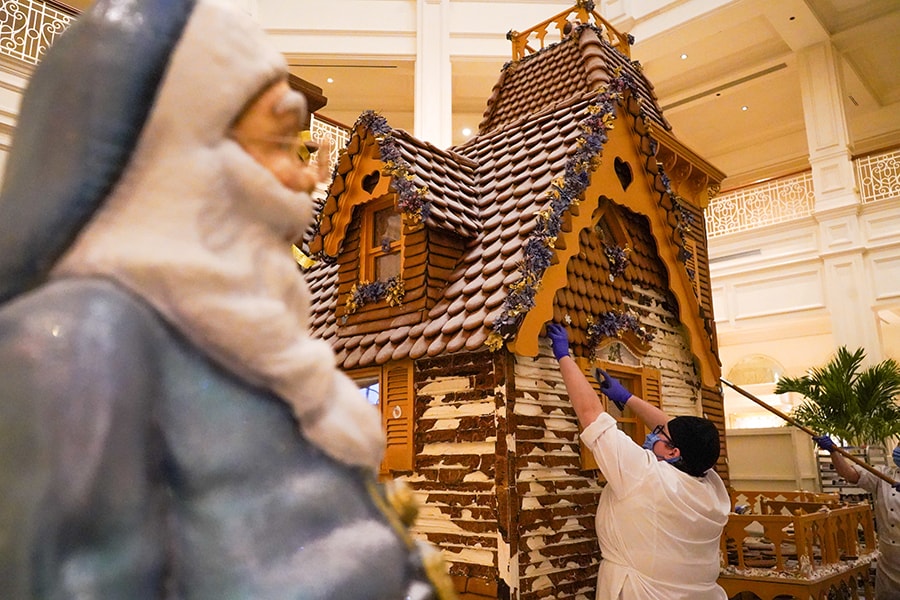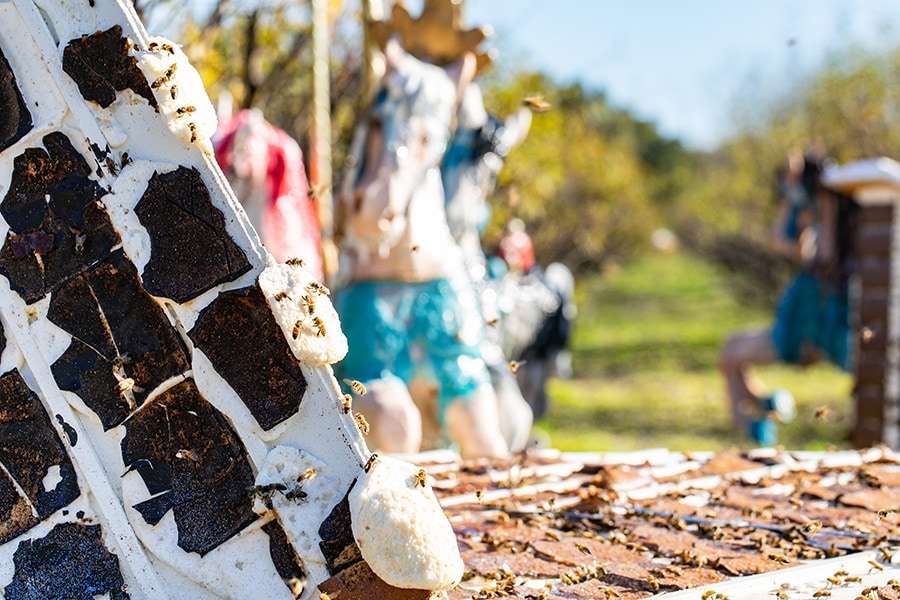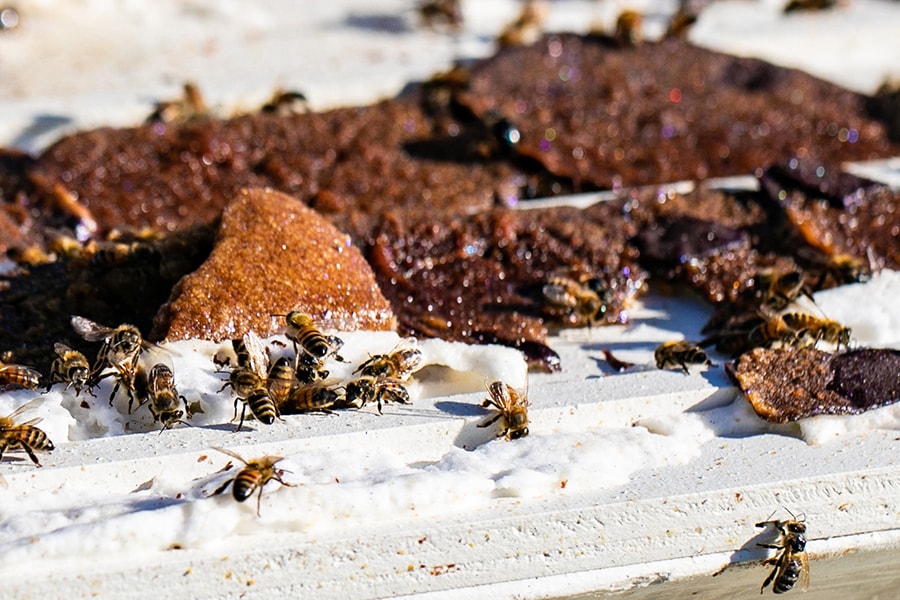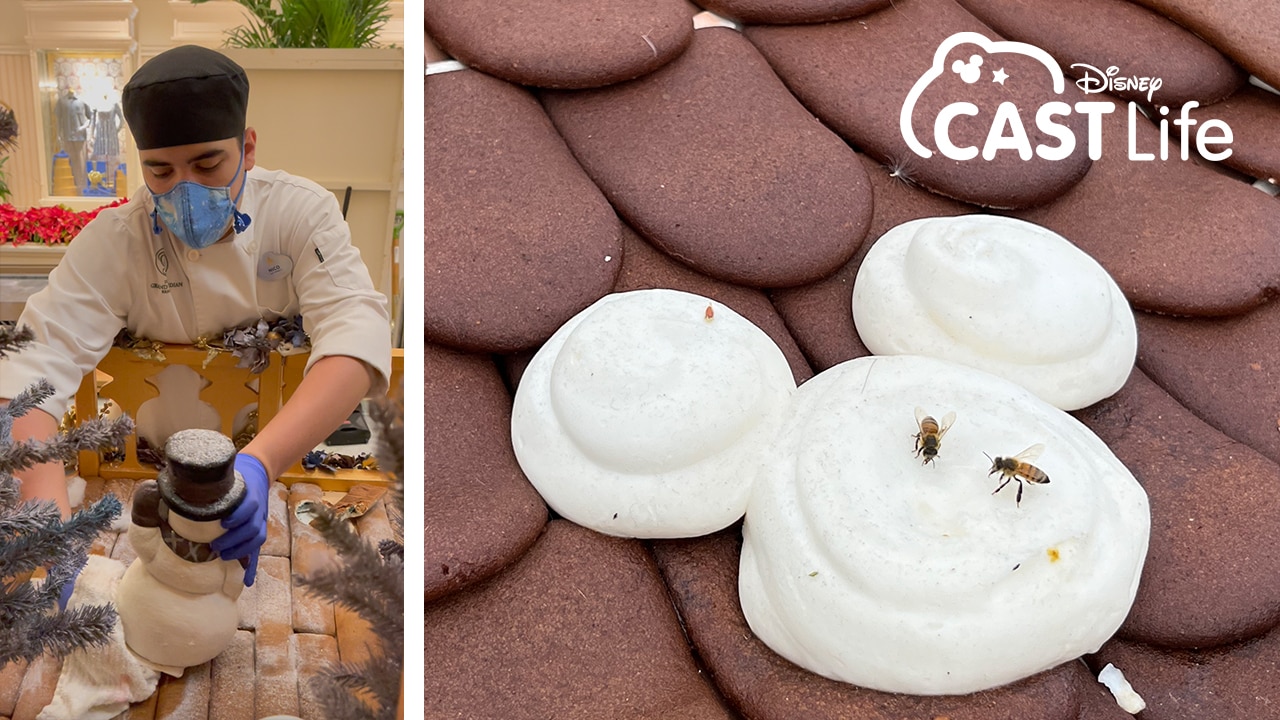The life-sized gingerbread displays at Walt Disney World Resort are a hallmark of the holidays, providing the perfect backdrop for cherished memories each year. As the season ends and festive décor begins to come down, cast members who had a hand in these confectionery creations bid a bittersweet farewell to these treats for now until it’s time to start the planning process all over again around summertime later this year. But what happens to a 17-foot-tall gingerbread Cinderella Castle after it’s disassembled? Let’s break it down.

First, our talented culinary team steps in to disassemble the giant gingerbread cookie structures.
“Each year, we remove all edible items and place them in food waste bins that are then sent for composting,” said Chef Kristine Farmer, a pastry chef at Disney’s Grand Floridian Resort & Spa.
The next step in the process involves an un-bee-lievable discovery cast members made about a decade ago that has since led to a sweet tradition during the annual gingerbread display recycling process.

Once cast members have cleared the displays of the gingerbread pieces, the wooden frames that hold the structures together are carefully taken apart and whisked away to our tree farm. That’s where our pollinator pals buzz in to help! Local bees feed off the frosting left on the frames as a sweet treat courtesy of our culinary teams — the perfect energy boost to fuel up on before they fly off to other pollinator pursuits that lead to honey making.

After these busy bees buzz off on their way, the wooden structures are hot washed clean to remove any remaining sugar and then put into storage to reuse during the next holiday season.
Check out this special bee-hind–the scenes video to see the process in action:
It’s a truly beautiful example of how cast members take distinctly Disney creations and, by giving them a second life, come up with inventive new ways to make a positive difference for the world and environment around us.
“Seeing how bees respond to the gingerbread displays is such a spectacular example of the impact an individual can have on the behavior of bees and wildlife,” said Dr. Zak Gezon, Conservation Manager for Disney’s Animals, Science and Environment. “You can even recreate something like this at home in a way that’s beneficial to native pollinators by creating your own pollinator garden using beautiful flowering plants.”
Feeling inspired? Learn how you can create your own pollinator garden at home by reading more on the Disney Parks Blog.

